Photo: Steve Granitz/WireImage/Getty Images
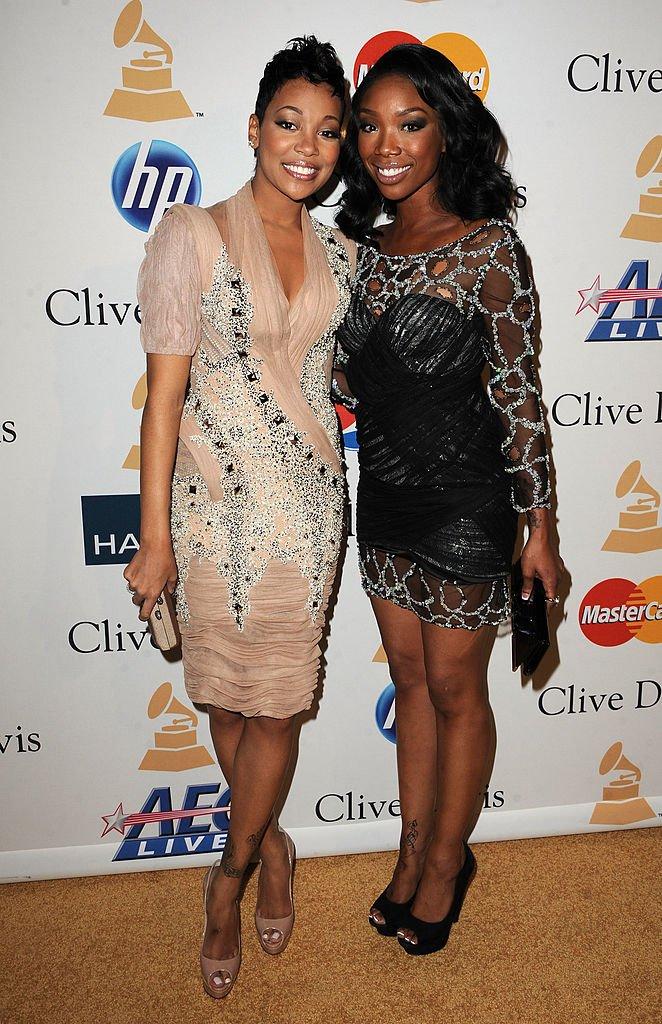
Brandy & Monica at 2011 Pre-GRAMMY Gala
news
From Brandy Vs. Monica To Timbaland Vs. Swizz Beatz, What's Your Favorite Verzuz Battle Matchup?
On Aug. 31, the latest Verzuz battle will pair up the '90s R&B/pop superstars 22 years after their unforgettable GRAMMY-winning "The Boy Is Mine" duet/duel. We want to know which epic pairing is your favorite
One of the more beautiful and creative things to come out of quarantine has been the Verzuz rap-and-beyond livestream battles, an ongoing, star-studded series hosted by GRAMMY-winning hip-hop icons Timbaland and Swizz Beatz.
The star-studded musical series began with the hosts themselves battling it out during a five-hour Instagram Live back in March, and has since featured such epic pairings as rap kings Rick Ross and 2 Chainz, New York OGs Fabolous and Jadakiss, big dogs DMX and Snoop Dogg, R&B/pop pianists Alicia Keys and John Legend, Jamaican dancehall heavyweights Beenie Man and Bounty Killer and many more.
Learn More: The Verzuz Effect: How Swizz Beatz & Timbaland's Beat Battles Showcase Music's Past, Present And Future
The musical faceoffs have also featured OG hit-making R&B producers Teddy Riley and Babyface, rap producer wunderkids Boi-1da and Hit-Boy, neo-soul queens Erykah Badu and Jill Scott, Southern rap champs Nelly and Ludacris, rapper/producer/hype men T-Pain and Lil Jon, as well as gospel legends Fred Hammond and Kirk Franklin.
Our Last Poll: From "WAP" To "Big Booty," What's Your Favorite Megan Thee Stallion Feature?
The latest, highly anticipated Verzuz (airing on Aug. 31 on Verzuz's Instagram, Apple Music and Apple TV) will pair up the '90s R&B/pop superstars Brandy and Monica 22 years after their iconic, GRAMMY-winning "The Boy Is Mine" duet/duel.
In honor of all the magic and realness Verzuz has been sharing worldwide this year, we want to know which epic pairing is your favorite in our poll above. Vote now and scroll down to watch some of the past battles.
<style>.embed-container { position: relative; padding-bottom: 56.25%; height: 0; overflow: hidden; max-width: 100%; } .embed-container iframe, .embed-container object, .embed-container embed { position: absolute; top: 0; left: 0; width: 100%; height: 100%; }</style><div class='embed-container'><iframe src='https://www.youtube.com/embed//7-Q_hwMSY2E' frameborder='0' allowfullscreen></iframe></div>
<style>.embed-container { position: relative; padding-bottom: 56.25%; height: 0; overflow: hidden; max-width: 100%; } .embed-container iframe, .embed-container object, .embed-container embed { position: absolute; top: 0; left: 0; width: 100%; height: 100%; }</style><div class='embed-container'><iframe src='https://www.youtube.com/embed/4P8ffef3P4A' frameborder='0' allowfullscreen></iframe></div>
<style>.embed-container { position: relative; padding-bottom: 56.25%; height: 0; overflow: hidden; max-width: 100%; } .embed-container iframe, .embed-container object, .embed-container embed { position: absolute; top: 0; left: 0; width: 100%; height: 100%; }</style><div class='embed-container'><iframe src='https://www.youtube.com/embed/X0ZH3IX-TqU' frameborder='0' allowfullscreen></iframe></div>
<style>.embed-container { position: relative; padding-bottom: 56.25%; height: 0; overflow: hidden; max-width: 100%; } .embed-container iframe, .embed-container object, .embed-container embed { position: absolute; top: 0; left: 0; width: 100%; height: 100%; }</style><div class='embed-container'><iframe src='https://www.youtube.com/embed/9kpzsazVs6o' frameborder='0' allowfullscreen></iframe></div>
<style>.embed-container { position: relative; padding-bottom: 56.25%; height: 0; overflow: hidden; max-width: 100%; } .embed-container iframe, .embed-container object, .embed-container embed { position: absolute; top: 0; left: 0; width: 100%; height: 100%; }</style><div class='embed-container'><iframe src='https://www.youtube.com/embed/t_5BYTblbFQ' frameborder='0' allowfullscreen></iframe></div>
Can You Fill Me In: 20 Years Of Craig David's 'Born To Do It'

Photo: Matt Jelonek/Getty Images
list
Ice Spice Is The Drill Queen On 'Y2K!': 5 Takeaways From Her Debut Album
The 10-track LP clocks in at just under 24 minutes, but it's packed with insanely quotable one-liners, star-studded collaborations, and bold statements.
Since Ice Spice first caught our attention two summers ago, she's been nothing short of a rap sensation. From viral hits like her breakout "Munch (Feelin' U)," to co-signs from Drake and Cardi B, to a Best New Artist nomination at the 2024 GRAMMYs, the Bronx native continues to build on her momentum — and now, she adds a debut album to her feats.
Poised to be one of the hottest drops of the summer, Y2K! expands on Ice Spice's nonchalant flow and showcases her versatility across 10 unabashedly fierce tracks. She dabbles in Jersey club on "Did It First," throws fiery lines on lead single "Think U the S— (Fart)," and follows the album's nostalgic title with an interpolation of an early '00s Sean Paul hit on "Gimmie a Light."
Y2K! also adds more star-studded features to Ice Spice's catalog, with Travis Scott, Gunna and Central Cee featuring on "Oh Shh...," "B— I'm Packin'," and "Did It First," respectively. At the helm is producer RiotUSA, Ice Spice's longtime friend-turned-collaborator who has had a hand in producing most of the rapper's music — proving that she's found her stride.
As you stream Ice Spice's new album, here are five key takeaways from her much-awaited debut, Y2K!.
She Doubles Down On Bronx Drill
Ice Spice is one of the few ladies holding down the New York drill scene on a mainstream level. She's particularly rooted in Bronx drill, a hip-hop subgenre known for its hard-hitting 808s, high-hats and synthesizers — and according to the sounds of Y2K!, it’s seemingly always going to be part of her artistry.
"It's always time to evolve and grow as an artist, so I'm not rushing to jump into another sound or rushing to do something different," Ice Spice told Apple Music of her tried-and-true musical style.
While Y2K! may not be as drill-driven as her debut EP Like…?, the album further hints that Ice isn't ready to retire the sound anytime soon. The subgenre is the dominant force across the album's 10 tracks, and most evident in "Did It First," "Gimmie a Light" and "BB Belt." Even so, she continues her knack for putting her own flair on drill, bringing elements of trap and electronic music into bops like "Oh Shhh…" and "Think U the S— (Fart)."
She Recruited Producers Old & New
Minus a few tunes, all of Ice Spice's songs start off with her signature "Stop playing with 'em, Riot" catchphrase — a direct nod to her right-hand man RiotUSA. Ice and Riot met while attending Purchase College in New York, and they've been making music together since 2021's "Bully Freestyle," which served as Ice's debut single. "As I was growing, she was growing, and we just kept it in-house and are growing together," Riot told Finals in a 2022 interview.
Riot produced every track on Like.. ? as well as "Barbie World," her GRAMMY-nominated Barbie soundtrack hit with Nicki Minaj. Their musical chemistry continues to shine on Y2K!, as Riot had a hand in each of the LP's 10 tracks.
In a surprising move, though, Ice doesn't just lean on Riot this time around. Synthetic, who worked on Lil Uzi Vert's GRAMMY-nominated "Just Wanna Rock," brings his Midas touch to "Think U the S—." Elsewhere, "B— I'm Packin'" is co-produced by Riot, Dj Heroin, and indie-pop duo Ojivolta, who earned a GRAMMY nomination in 2022 for their work on Kanye West's Donda. But even with others in the room, Riot's succinct-yet-boisterous beats paired with Ice's soft-spoken delivery once again prove to be the winning formula.
She Loves Her Y2K Culture
Named after Ice Spice's birthdate (January 1, 2000), her debut album celebrates all things Y2K, along with the music and colorful aesthetics that defined the exciting era. To drive home the album's throwback theme, Ice tapped iconic photographer David LaChapelle for the cover artwork, which features the emcee posing outside a graffiti-ridden subway station entrance. LaChapelle's vibrant, kitschy photoshoots of Mariah Carey, Lil' Kim, Britney Spears, and the Queen of Y2K Paris Hilton became synonymous with the turn of the millennium.
True to form, Y2K!'s penultimate song and second single "Gimmie a Light" borrows from Sean Paul's "Gimme the Light," which was virtually inescapable in 2002. "We really wanted to have a very authentic Y2K sample in there," Ice Spice said in a recent Apple Music Radio interview with Zane Lowe. Not only does the Sean Paul sample bring the nostalgia, but it displays Ice's willingness to adopt new sounds like dancehall on an otherwise drill-heavy LP.
Taking the Y2K vibes up another notch, album closer "TTYL," a reference to the acronym-based internet slang that ruled the AIM and texting culture of the early aughts. The song itself offers fans a peek insideIce's lavish and exhilarating lifestyle: "Five stars when I'm lunchin'/ Bad b—, so he munchin'/ Shoot a movie at Dunkin'/ I'm a brand, it's nothin.'"
She's A Certified Baddie
Whether she's flaunting her sex appeal in "B— I'm Packin'" or demanding potential suitors to sign NDAs in "Plenty Sun," Ice exudes confidence from start to finish on Y2K!.
On the fiery standout track "Popa," Ice demonstrates she's in a league of her own: "They ain't want me to win, I was chosen/ That b— talkin' s—, she get poked in/ Tell her drop her pin, we ain't bowlin'/ Make them b—hes sick, I got motion." And just a few songs later, she fully declares it with "BB Belt": "Everybody be knowin' my name (Like)/ Just want the money, I don't want the fame (Like)/ And I'm different, they ain't in my lane."
For Ice, "baddie" status goes beyond one's physical attributes; it's a mindset she sells with her sassy delivery and IDGAF attitude.
She's Deep In Her Bag
In album opener "Phat Butt," Ice boasts about rocking Dolce & Gabbana, popping champagne, and being a four-time GRAMMY nominee: "Never lucky, I been blessed/ Queen said I'm the princess/ Been gettin' them big checks in a big house/ Havin' rich sex," she asserts.
Further down the track list, Ice Spice firmly stands in her place as rap's newest queen. In "BB Belt," she raps, "I get money, b—, I am a millionaire/ Walk in the party, everybody gon' stare/ If I ain't the one, why the f— am I here, hm?"
Between trekking across the globe for her first headlining tour and lighting up the Empire State Building orange as part of her Y2K! album rollout, Ice Spice shows no signs of slowing down. And as "BB Belt" alludes, her deal with 10K Projects/Capitol Records (she owns her masters and publishing) is further proof that she's the one calling the shots in her career.
Whatever Ice decides to do next, Y2K! stands as a victory lap; it shows her prowess as drill's latest superstar, but also proves she has the confidence to tackle new sounds. As she rapped in 2023's "Bikini Bottom," "How can I lose if I'm already chose?" Judging by her debut album, Ice Spice is determined to keep living that mantra.
More Rap News

Ice Spice Is The Drill Queen On 'Y2K!': 5 Takeaways From Her Debut Album

Watch Young MC Win Best Rap Performance In 1990

On Rakim's 'G.O.D's Network (REB7RTH)' The MC Turned Producer Continues His Legacy With An All-Star Cast

5 Ways Mac Dre's Final Living Albums Shaped Bay Area Rap

Denzel Curry Returns To The Mischievous South: "I've Been Trying To Do This For The Longest"

Photo: Brett Carlsen/Getty Images for Spotify
news
New Music Friday: Listen To New Songs From Halsey, MGK And Jelly Roll, XG & More
As July comes to a close, there's another slew of new musical gems to indulge. Check out the latest albums and songs from Paris Hilton and Meghan Trainor, Mustard and more that dropped on July 26.
July has graced us with a diverse array of new music from all genres, lighting up dance floors and speakers everywhere.
The last weekend of the month brings exciting new collaborations, including another iconic track from Calvin Harris and Ellie Goulding, as well as a fierce team-up from Paris Hilton and Meghan Trainor. Halsey and Muni Long offered a taste of their forthcoming projects, while Jordan Davis and Miranda Lambert each delivered fun new country tunes.
In addition to fresh collabs and singles, there's a treasure trove of new albums to uncover. Highlights include Ice Spice's Y2K!, Rakim's G.O.D., Sam Tompkins' hi, my name is insecure, Wild Rivers' Never Better, Tigirlily Gold's Blonde, and kenzie's biting my tongue.
As you check out all the new music that dropped today, be sure you don't miss these 10 tracks and albums.
mgk & Jelly Roll — "Lonely Road"
Although fans anticipated Machine Gun Kelly's next release to mark his return to hip-hop, no one seems to be complaining about "KellyRoll." Embracing the trend of venturing into the country genre, mgk teams up with fellow GRAMMY-nominated artist Jelly Roll on their newest track, "Lonely Road."
The genre-blending track interpolates John Denver's classic "Take Me Home, Country Roads." However, unlike Denver's sentimental ode to the simplicity of rural life, mgk and Jelly Roll reinterpret the track through the lens of romantic relationships that have come to a, well, lonely end.
As mgk revealed in an Instagram post, "Lonely Road" was a labor of love for both him and Jelly Roll. "We worked on 'Lonely Road' for 2 years, 8 different studios, 4 different countries, changed the key 4 times," he wrote. "We finally got it right."
Halsey — "Lucky"
In another interpolation special, Halsey samples not one but two classics in their latest single, "Lucky." The song's production features elements of Monica's 1999 hit "Angel of Mine," while the chorus flips Britney Spears' fan-favorite "Lucky" into a first-person narrative.
While Halsey has always been a transparent star, their next project is seemingly going to be even more honest than their previous releases. After first revealing their journey with lupus with the super-personal "The End" in June, "Lucky" further details their struggles: "And I told everybody I was fine for a whole damn year/ And that's the biggest lie of my career."
Though they haven't revealed a release date for their next project, Halsey referred to her next era as a "monumental moment in my life" in an Instagram post about the "Lucky" music video — hinting that it may just be their most powerful project yet.
Read More: Everything We Know About Halsey's New Album
Paris Hilton & Meghan Trainor — "Chasin'"
Ahead of Paris Hilton's forthcoming album, Infinite Icon — her first in nearly 20 years — the multihyphenate unveiled another female-powered collaboration, this time with Meghan Trainor. Co-produced by Sia, "Chasin'" is a lively pop anthem about discovering self-worth in romantic relationships and finding the strength to walk away from toxicity.
"She is the sister I always needed and when she calls me sis, I die of happiness inside," Trainor told Rolling Stone about her relationship with Hilton. Coincidentally, Trainor first wrote the track with her brother, Ryan, but the pop star was waiting for the right collaborator to hop on the track — and Hilton was just that.
"We made something truly iconic together," Trainor added. "It was a bucket list dream come true for me."
Empire Of The Sun — 'Ask That God'
A highly awaited return to music after eight years, Australian electro-pop duo Empire Of The Sun are back with their fourth studio album, Ask That God.
"This body of work represents the greatest shift in consciousness our world has ever seen and that's reflected in the music," says member Lord Littlemore in a press statement.
Like their previous work that transports listeners to a different universe, this album continues that tradition with trancey tracks like lead single "Changes" and the thumping title track. Ask That God offers a chance to reflect on the blend of reality and imagination, while also evoking the radiant energy of their past songs.
Calvin Harris & Ellie Goulding — "Free"
Dance music's collaborative powerhouse, Calvin Harris and Ellie Goulding, are back with another summer hit. Their latest track, "Free," marks the fourth collaboration between the duo — and like their past trilogy of hits, the two have another banger on their hands.
The track debuted earlier this month at Harris' show in Ibiza, where Goulding made a surprise appearance to perform "Free" live. With Harris delivering an infectious uptempo house beat and Goulding's silky vocals elevating the track, "Free" proves that the pair still have plenty of musical chemistry left.
Post Malone & Luke Combs — "Guy For That"
Post Malone's transition into country music has been anything but slow; in fact, the artist went full-throttle into the genre. The New York-born, Texas-raised star embraced his new country era with collaborations alongside some of the genre's biggest superstars, like Morgan Wallen and Blake Shelton. Continuing this momentum as he gets closer to releasing F-1 Trillion, Post Malone teams up with Luke Combs for the new track "Guy For That."
The catchy collaboration tells the story of a relationship that has faded, where the protagonist knows someone who can fix almost anything, except for a broken heart. It's an upbeat breakup song that, like Post's previous F-1 Trillion releases, can get any party going — especially one in Nashville, as Malone and Combs did in the track's music video.
Forrest Frank & Tori Kelly — "Miracle Worker"
Just one month after Surfaces released their latest album, good morning, the duo's Forrest Frank unveiled his own project, CHILD OF GOD — his debut full-length Christian album. Among several features on the LP, one of the standouts is with GRAMMY-winning artist Tori Kelly on the track "Miracle Worker."
Over a plucky electric guitar and lo-fi beats, Frank and Kelly trade verses before joining for the second chorus. Their impassioned vocals elevate the song's hopeful prayer, "Miracle Worker make me new."
Their collaboration arrives just before both artists hit the road for their respective tours. Frank kicks his U.S. trek off in Charlotte, North Carolina on July 31, and Kelly starts her world tour in Taipei, Taiwan on Aug. 17.
XG — "SOMETHING AIN'T RIGHT"
Since their debut in 2022 with "Tippy Toes," Japanese girl group XG has been making waves and showing no signs of slowing down. With their first mini album released in 2023 and now their latest single, "SOMETHING AIN'T RIGHT," the group continues to rise with their distinctive visuals and infectious hits.
The track features a nostalgic rhythm reminiscent of early 90s R&B, showcasing the unique personalities of each member. As an uptempo dance track, it's designed to resonate with listeners from all across the globe.
"SOMETHING AIN'T RIGHT" also serves as the lead single for XG's upcoming second mini album, set to release later this year.
Mustard — 'Faith of a Mustard Seed'
For nearly 15 years, Mustard has been a go-to producer for some of rap's biggest names, from Gucci Mane to Travis Scott. On the heels of earning his first Billboard Hot 100 chart-topper as a producer with Kendrick Lamar's "Not Like Us," he's back with his own collaboration-filled project.
Faith of a Mustard Seed features a robust 14-song track list with contributions from Vince Staples, Lil Yachty, Charlie Wilson, and more. The LP marks Mustard's fourth studio album, and first since 2019's Perfect Ten.
In an interview with Billboard, Mustard shared that the album's title is an ode to late rapper Nipsey Hussle, who suggested the title during one of their final conversations before his untimely death in 2019. And once "Not Like Us" hit No. 1, Mustard knew it was time to release the long-in-the-making album.
Latest News & Exclusive Videos

2024 Paris Olympics Opening Ceremony: Watch Celine Dion, Lady Gaga, Gojira & More Perform

Ice Spice Is The Drill Queen On 'Y2K!': 5 Takeaways From Her Debut Album

New Music Friday: Listen To New Songs From Halsey, MGK And Jelly Roll, XG & More

Watch Young MC Win Best Rap Performance In 1990

The Red Clay Strays Offer A New Kind Of Religion With 'Made By These Moments'
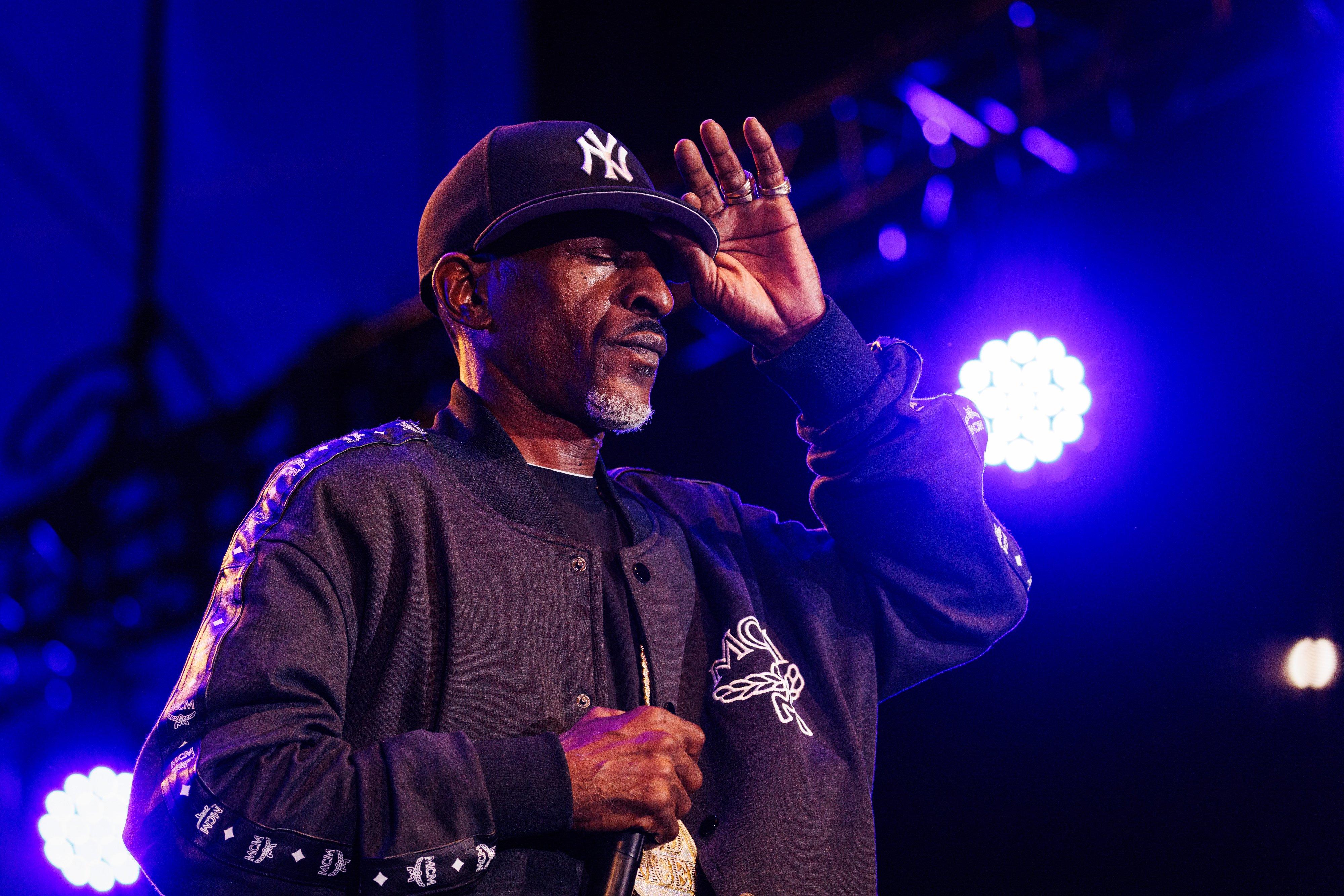
Photo: Richard Bord
feature
On Rakim's 'G.O.D's Network (REB7RTH)' The MC Turned Producer Continues His Legacy With An All-Star Cast
On his first project in 15 years, "God MC" Rakim produced seven songs and called on some of hip-hop's biggest names. The legend and his team detail his new album and working with Nipsey Hussle, DMX and Snoop Dogg.
Every album comes with a backstory, but not many come with two. Rakim's new project G.O.D's Network (REB7RTH), out July 26, came together in a few quick months, from signing a deal in February 2024 to completion in June. The process was spurred by one dedicated A&R person frantically combing through his network of rappers to get guest verses over beats produced by the God MC himself.
But to hear that A&R man, Matt "M80" Markoff, tell it, creating the seven-song project didn't take four months. It took four years.
"I've known [Rakim's longtime manager] Matt [Kemp] and Rakim since 2007," Markoff tells me when I get him on the phone in late June. "They're used to getting calls from me a couple of times a year just for, like, show referrals, verse referrals, things of that nature."
Back at the beginning of the pandemic, Markoff had been talking to the folks at Fat Beats, the venerable record store-turned-distributor that's a huge name in independent hip-hop. He mentioned Rakim's name to the company, and Fat Beats responded that they'd love a project from the God MC. The original pitch, Markoff remembers, was "a three or four song EP with some remixes."
Rakim quoted his price, Fat Beats agreed, and the project was underway, with the emcee meeting with producers to look for beats. But Rakim, who hasn't released a solo album since 2009's The Seventh Seal, is not one to be hurried.
"Ra was having [DJ] Premier and Pete Rock and Ninth Wonder and some of these people come to the studio," Markoff says. "Because of scheduling conflicts and stuff and, you know, normal course of life, it just wasn't right. The vibe wasn't there."
That's where Jazzy Jeff came into play. Rakim and the legendary DJ began working together and, per Markoff, it "just meshed." It seemed like, instead of a handful of songs, a full-length record was in the offing.
"As soon as they finish the first song, I walk into Fat Beats and say, ‘Hey, this is what we're doing now,'" the A&R man recalls. "Instead of Rakim with random producers, it's Rakim/Jazzy Jeff. That'll be huge."
Then…nothing.
A few years pass, and the Rakim and Jazzy Jeff project is still unfinished. (Rakim described its status as "We have a couple records already done.") Fat Beats, which was on the auction block (it was eventually sold in March 2024), wants its money back. Rakim obliges, and everyone seems set to forget about the whole thing.
Markoff, however, was not about to give up on working with the man he calls "my favorite emcee of all time."
The revamped album started its life as not an album at all. Instead, the original conception was a model Markoff had used before: licensing beats by people not typically thought of as producers. In this case, he'd be offering aspiring rappers the chance to get beats by arguably the most influential rapper of all time.
"He's taken people who are not necessarily known as producers and put together beat packages for them," manager Matt Kemp says of Markoff. "And then, one of the things he does is he goes out and he licenses those beats through a company that he has. If you're a European artist that wouldn't necessarily have access to things like that, you can get it."
So that, as of February of this year, was the (revamped) plan: have Rakim do six beats and one verse, and sell non-exclusive licenses, so that any rapper, anywhere in the world, who wants to use them in a song of their own could do so. This, indeed, was a vision that was followed through all the way to the finish line — you can see the end result released July 12, priced between $700-$1,050 depending on what you want to do with the beats and the rhyme, here.
But along the way to creating that package, things got significantly more complicated. As Rakim was making the beats, he found he really liked them. In some cases, he even wanted to rhyme on them himself.
"As the beats started coming together and Rakim was really in the studio and we started putting the rhymes onto them, we realized that it was bigger just than that [original vision]," Matt Kemp said.
The wheels started turning. Rakim, the God MC, as a producer? That would be a project worth sharing with the world, not just a few aspiring artists.
As it turns out, unbeknownst even to many Ra fans, the rapper has been making beats since the beginning. In fact, he produced — and played drums on — one of Eric B and Rakim's classic songs, 1992's "Juice (Know the Ledge)." So producing an entire project didn't seem like such a big stretch after all.
"I always was attached to making beats," Rakim explains to me. "But I got to the point where I'm confident with my production now. I got the chance to produce the album and jumped at the opportunity."
Rakim, as has been well documented over the years, comes from a musical family. His older brother Ronnie was a keyboard player of some note with his own claim on rap history, his other brother Stevie is also keyboardist who performed on some Eric B. and Rakim songs, and the rapper's aunt is the late R&B legend Ruth Brown. So when making beats, Ra will often play drums, bass, guitar, or piano. (He cops to enlisting one of his brothers if the keyboard part gets too complicated.)
He describes his production style this way: "You try to add on to the sample, and enhance certain sounds that you hear. Or you might just add a melody that you feel enhances the sample as well."
In addition to playing instruments on the project, Rakim also plays the turntable.
"I always knew how to DJ, and I like being able to enjoy the project from a different seat," he tells me. "I enjoyed putting the music together, coming up with the scratch patterns."
So with the musical side of the equation firmly in place, what about the vocals? Rakim was inspired to add verses on a few songs, and hooks on a few more.
"It's mostly a project that I was supposed to be producing," he explains. "In the midst of that, there's certain beats that I'm playing and I'm like, ‘I gotta rhyme on this one,' or, ‘I got a rhyme that fits this one perfectly.'"
The question was, what to write about? After a decade and a half without an album, the rapper had a lot to discuss, and needed to find new ways to say it.
For the project's lead single, "BE ILL," he got in plenty of internal rhymes. And the song's tempo allowed him to come up with different rhythms.
"When tracks are at that speed, I'm able to manipulate time and space to come up with different rhythms because I have so much time and space to deal with," he says. "It was one of them songs I loved rhyming to. Just having fun with words and phrases, and at the same time having so much on my mind to say."
"I'm trying to say a lot of things," Ra admits when discussing his writing on the album. "It's hard to just come back and say a verse when you've been gone so long. So I tried to be very specific and cautious with the words that I chose, and try to be entertaining at the same time. So it was a little nerve wracking."
Even with Rakim's vocal contributions (he ends up with either verses or hooks on six of the project's seven tracks), more was needed to complete the songs. That's where Markoff really got going.
"Literally, I didn't waste a single day," he remembers. "I was calling the artists in my network. I reached out to each artist one by one, and let each artist go through the folder [of beats] with me and make their picks."
Among the artists Markoff reached out to were several members of the Wu-Tang Clan. He has a long relationship with the crew, having worked with them on several projects including the well-regarded 2005 album Wu-Tang Meet the Indie Culture.
Markoff recalls the exact moment when he lined up Wu member Masta Killa for his appearance on what became "BE ILL."
"I was at the first ever Wu-Tang Clan residency in Vegas, and I told Masta Killa, ‘Dude, I just got these Rakim beats 10 minutes ago.' I played 10 seconds of the second beat, which was the beat for ‘BE ILL.' And he was like, ‘That's the one.'"
A different Wu-Tang show was responsible for one of the album's other notable guest appearances, Cash Money stalwart B.G. The two met at the concert, and the Louisiana rapper was in the studio "48 hours later," Markoff recalls.
For a handful of artists he had good long-term relationships with, Markoff let them choose which of Rakim's beats they wanted to rap over. In addition to Masta Killa, he names Chino XL, Hus Kingpin, 38 Spesh, and TriState as being on that short list. After that, he says, it was all his decision.
The end result is a list of some of the top rappers in his Rolodex: Kool G. Rap, Method Man, Kurupt, Canibus, KXNG Crooked, Skyzoo, Joell Ortiz, and many more — including an outro from Snoop Dogg. But one of the most surprising things on the tracklist is that a number of the guests aren't alive anymore.
Nipsey Hussle, Prodigy, DMX, and Fred the Godson have verses on the record. All of them were people Markoff had worked with in some capacity over the course of his career. He says that all of the verses were "in my stash or under my ownership." So when he was looking for material for the Rakim project, they were a perfect fit.
The Nipsey Hussle contribution in particular stood out so much that the entire song, "Love Is the Message," was designed around it. The project's engineer placed Neighborhood Nip's verse first, and everyone else listened to that when recording.
"We kind of glorified who he is, and came up with the title ‘Love Is the Message' to put everything in perspective," Rakim tells me. "So everybody vibed off of that and everything that we implemented had to have that feel or had to be in that direction."
One thing Rakim noticed as he was listening to the contributions coming in? Many of them were paying tribute to him. In particular, B.G. says in his verse that he's "on a song with the greatest."
"To hear things like that from my peers is a beautiful thing," says Rakim, who also admits to tearing up when hearing Snoop Dogg praise him on the outro of one of the album's songs. "Hip-hop is one of the more, I guess, feisty genres. It's hard to get that love from your peers. So it's a real blessing to hear it from people like that, to hear what they think of you and to say that on records. A lot of people might think that of you, but would never say it on a record."
For Markoff, B.G.'s tribute was particularly meaningful because of the rapper's history. He began his career in a duo, and later a quartet, with another rapper sometimes considered the greatest of all time, Lil Wayne.
"For B.G. to have that history, but acknowledge Rakim — I was speechless," Markoff confides. "It was really cool to see. It's like, ‘I'm not just going to say my partner, my friend, my confidant Lil Wayne's the best because we grew up together.'"
Finally, after all the guest verses came in, the project was ready. Seven songs, entirely produced by Rakim, with raps by him and a broad cross-section of artists. The question, then: what exactly is this project? An album? An EP? Rakim's big comeback? A teaser for his eventual full-length return?
To Markoff, none of these labels are important. He's not concerned about fans being disappointed that a project under Rakim's name features only a handful of the rapper's verses.
"The fan is going to look at it however they want to look at it," he says. "The negative people will stay negative. It wouldn't matter if it was the greatest album of all time. The positive people that are so grateful that I stepped up to the plate to help bring new Rakim music to the world are going to love it."
After all, he continues, "The whole point originally when we started making it was letting his peers shine on Rakim beats. The fact that this project morphed into something that Rakim literally is on 95% of, I couldn't have asked for more of a blessing."
So Matt Markoff, the boy who fell in love with Rakim's music at 12 is now, three decades later, putting out music from his hero.
"Dream fulfilled," he says right before we hang up. "Now I gotta figure out what I'm going to do for the rest of my life."
Latest News & Exclusive Videos

2024 Paris Olympics Opening Ceremony: Watch Celine Dion, Lady Gaga, Gojira & More Perform

Ice Spice Is The Drill Queen On 'Y2K!': 5 Takeaways From Her Debut Album

New Music Friday: Listen To New Songs From Halsey, MGK And Jelly Roll, XG & More

Watch Young MC Win Best Rap Performance In 1990

The Red Clay Strays Offer A New Kind Of Religion With 'Made By These Moments'
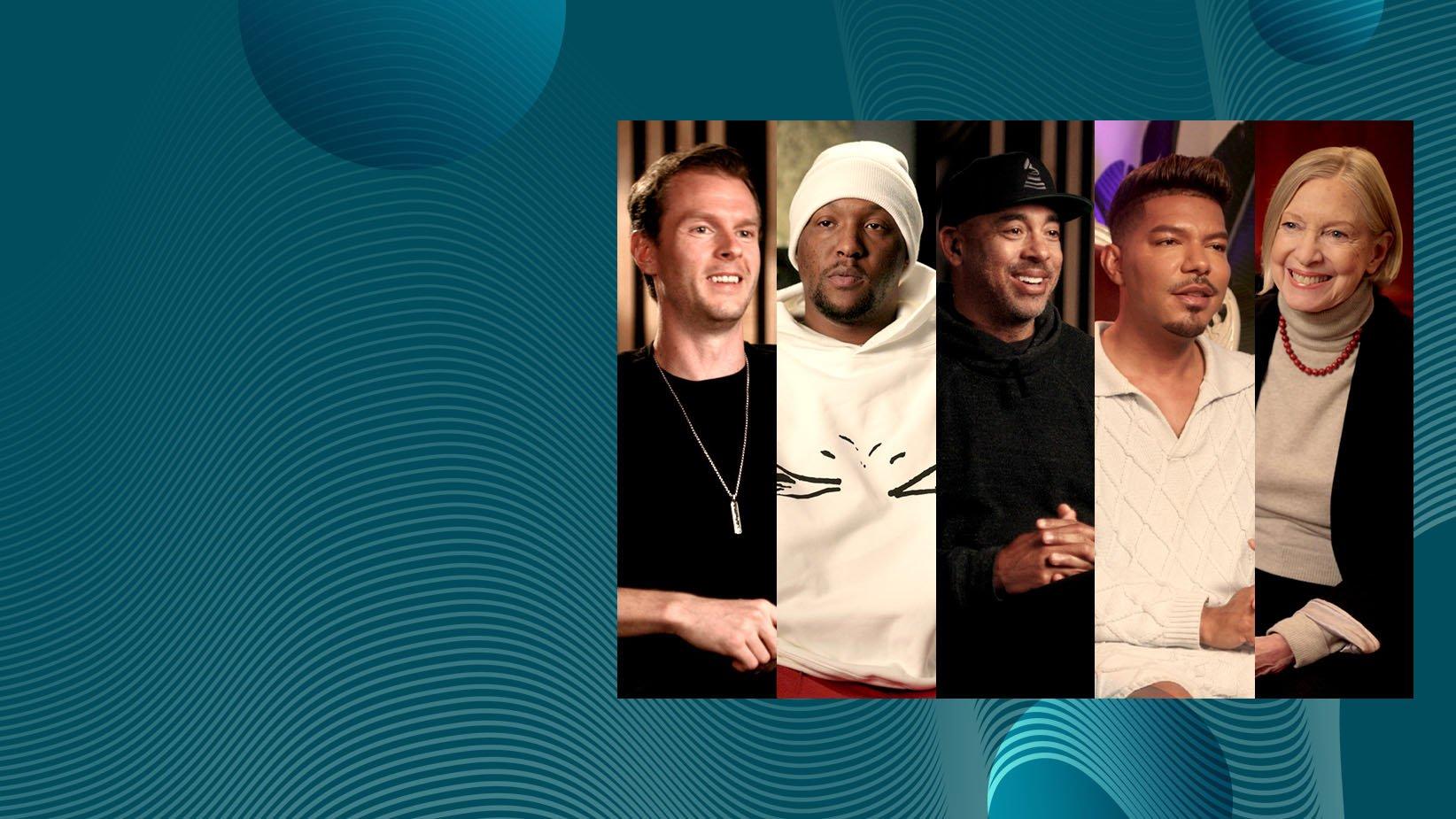
Photos Courtesy of the Recording Academy
news
The New GRAMMY GO Music Production Course Is Now Open: Featuring GRAMMY Winners Hit-Boy, CIRKUT, Judith Sherman & More
Enrollment is now open for GRAMMY GO's new specialization, "Music Production: Crafting Award-Worthy Songs," featuring appearances by GRAMMY winners and nominees. Learn music production and creative strategies from today's industry leaders.
Editor’s Note: Updated to add the Instagram Live video featuring Harvey Mason jr. and Stevie Mackey.
The Recording Academy continues its mission to empower music's next generation with the launch of its second specialization in the GRAMMY GO platform: "Music Production: Crafting Award-Worthy Songs."
This new course, a partnership between the Recording Academy and leading online learning platform Coursera, aims to bolster the technological and audio skills of music producers of all levels. The course, taught by Howard University professor and GRAMMY nominee Carolyn Malachi, features appearances by three-time GRAMMY winner and rap icon Hit-Boy, chart-topping and GRAMMY-winning producer/songwriter CIRKUT, artist and celebrity vocal coach Stevie Mackey, five-time GRAMMY nominee and Recording Academy CEO Harvey Mason jr., and 15-time GRAMMY winner Judith Sherman.
Enrollment for "Music Production: Crafting Award-Worthy Songs" is open now.
Mixing a unique blend of theory and practice, the course teaches music creators of all levels the advanced skills and tools to develop the mindset and confidence of an experienced producer and produce songs of the highest industry standards across all genres. Explore the wide-ranging roles of a music producer, develop critical listening and analysis skills, and master the technical aspects to create music and compositions that cut through the noise. The course's applied learning approach allows learners to sharpen their pre-production skills, utilize Digital Audio Workstations (DAWs) effectively, and produce vocals, instrumentals and samples collaboratively. Through critical listening exercises and discussions, learners will refine their abilities to deliver professional-quality demos.
To celebrate the launch, the Recording Academy hosted an Instagram Live session on Tuesday in which guests Harvey Mason jr. and Stevie Mackey discussed the evolving role of music producers, strategies for working with artists, key elements of top-notch productions, common mixing mistakes, tips for keeping the creative process fresh, and enrollment details for the course.
Building on the success of its first specialization, "Building Your Audience for Music Professionals," GRAMMY GO continues to offer industry-focused education tailored for emerging and established music creators and professionals alike. The innovative platform provides learners with real-time insights from leading music industry figures, ensuring the content remains practical and up to date. GRAMMY GO will also serve as an essential tool in the Recording Academy's global expansion into Africa and the Middle East, empowering music creators through enhanced training, bridging knowledge gaps, and fostering connections within the global music community.
Launched in April in partnership with Coursera, GRAMMY GO is the Recording Academy's first creator-to-creator platform, offering innovative courses tailored for both emerging and established music professionals. The initiative accelerates the Academy's global mission and reinforces its commitment to music education, providing a seamless bridge between all Academy initiatives.
Learn more about GRAMMY GO and the "Music Production: Crafting Award-Worthy Songs" and "Building Your Audience for Music Professionals" specializations.
Watch the Instagram Live session with Harvey Mason jr. and Stevie Mackey in full below:
More Music Education News & Initiatives
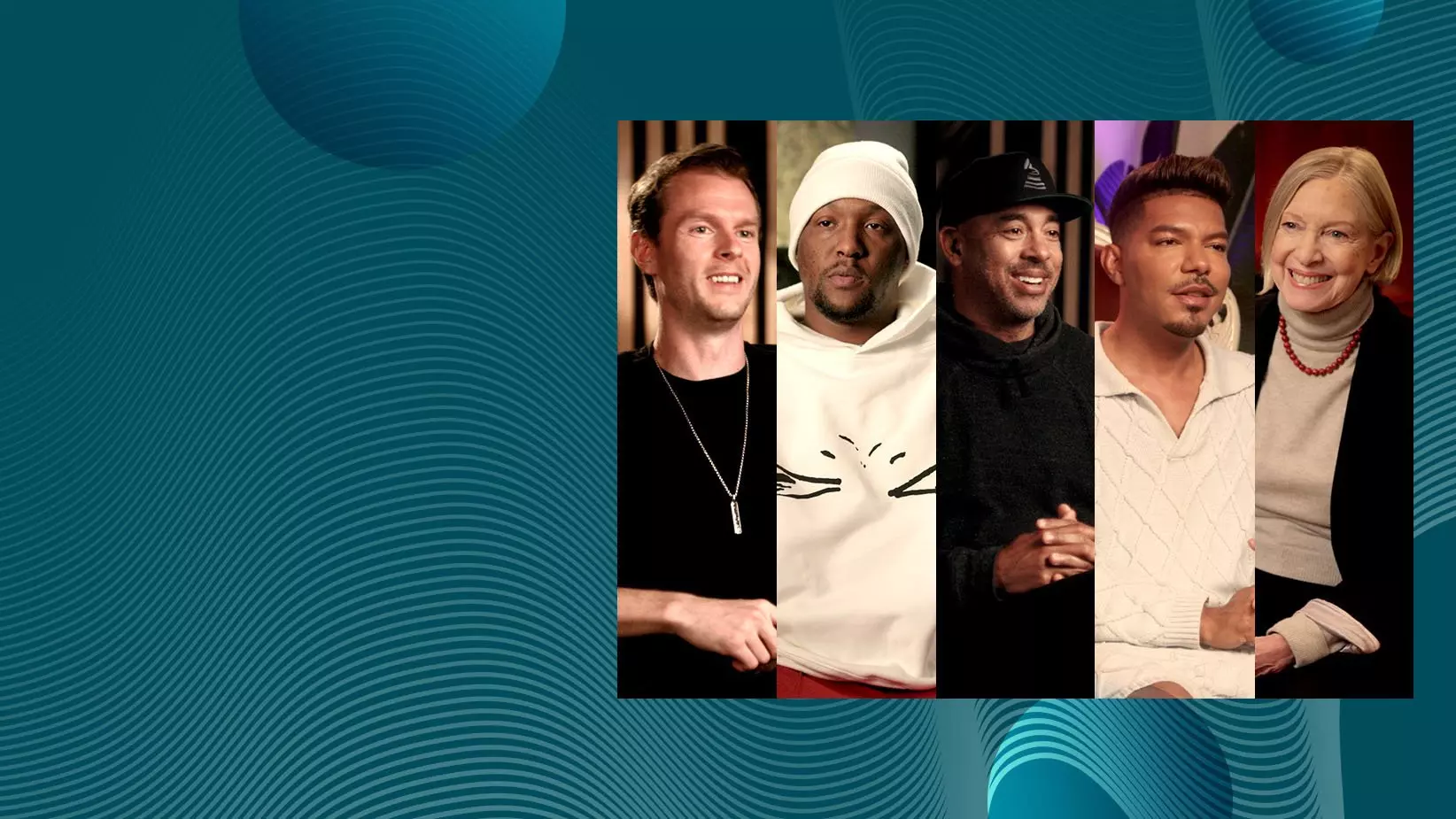
The New GRAMMY GO Music Production Course Is Now Open: Featuring GRAMMY Winners Hit-Boy, CIRKUT, Judith Sherman & More
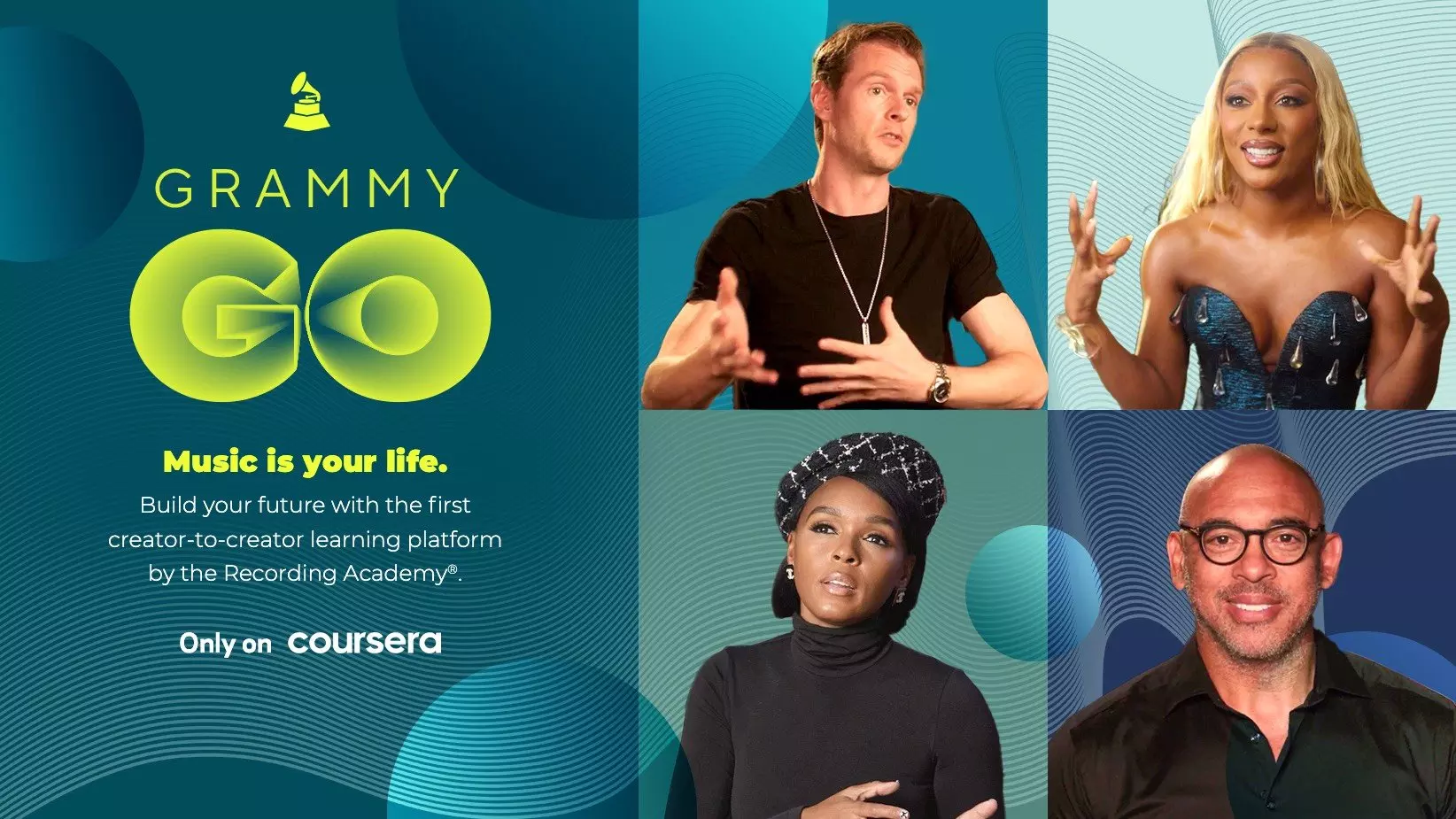
Recording Academy & Coursera Partner To Launch GRAMMY GO Online Learning Initiative
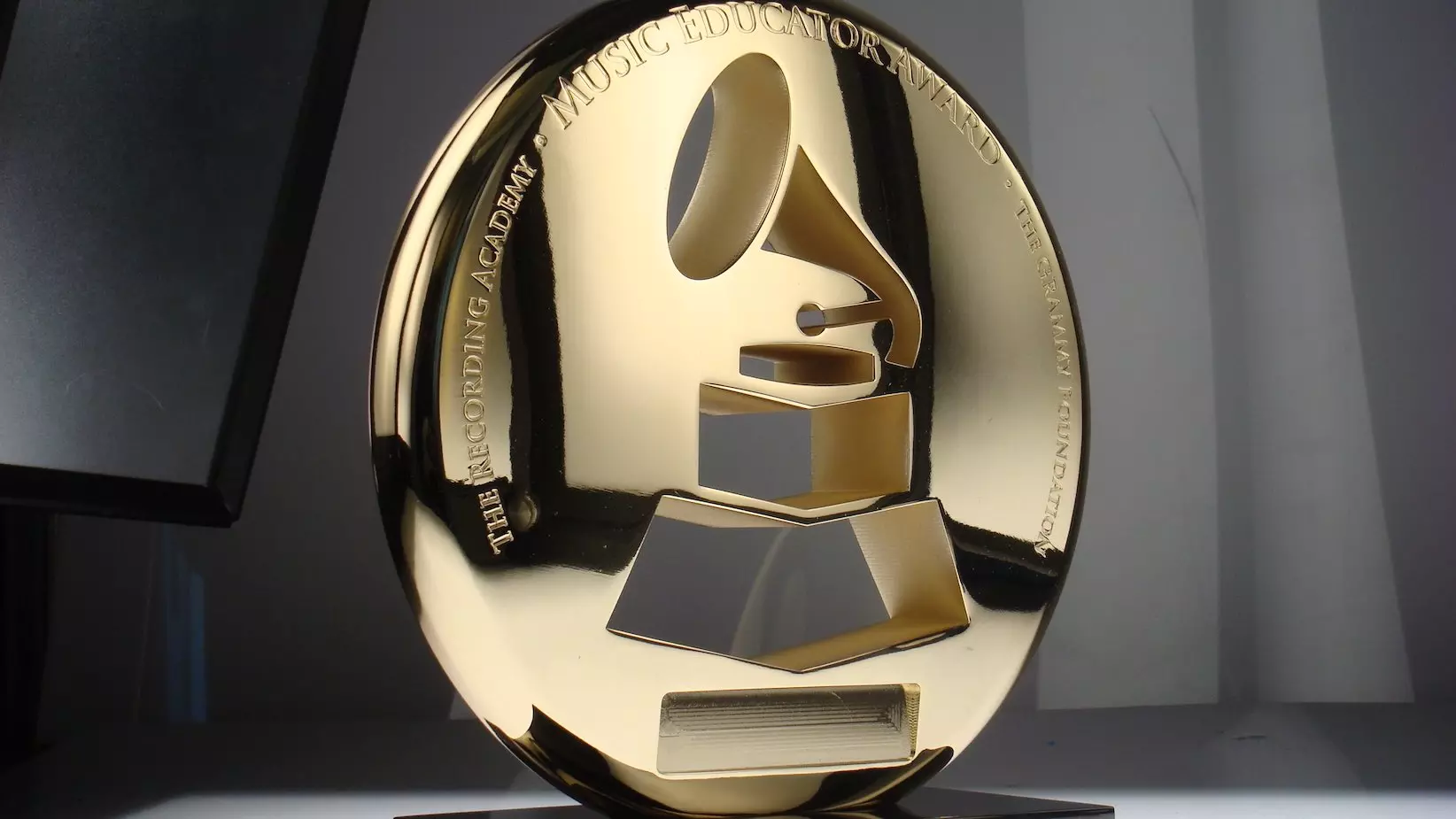
25 Semifinalists Announced For The 2024 Music Educator Award

5 Music Teachers Share The Transformative Power Of Music Education
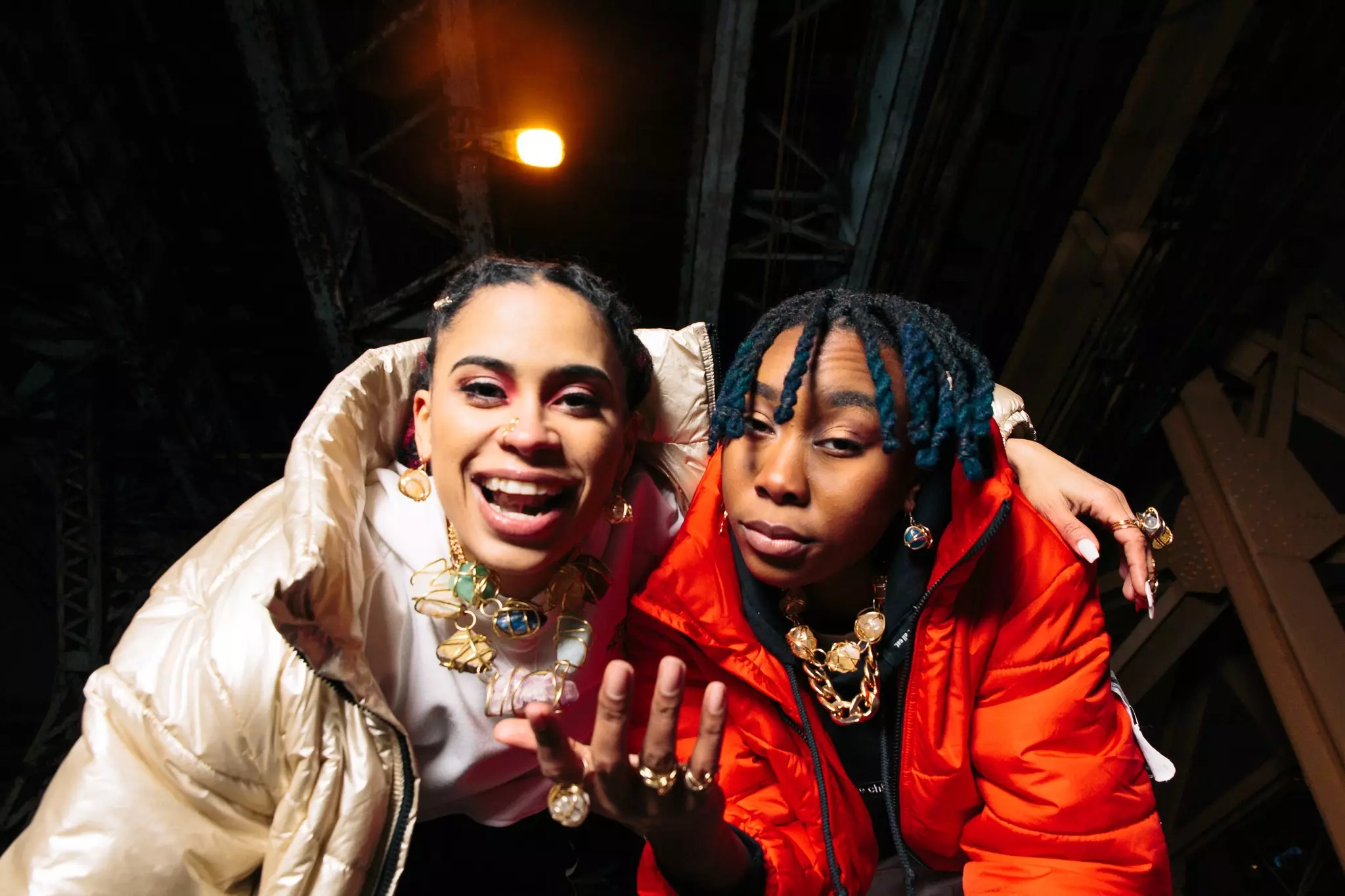
Meet Mother Nature, The Chicago Rap Duo That Teach & Live Self-Expression Through Their Miseducation Of HipHop Youth Workshops
